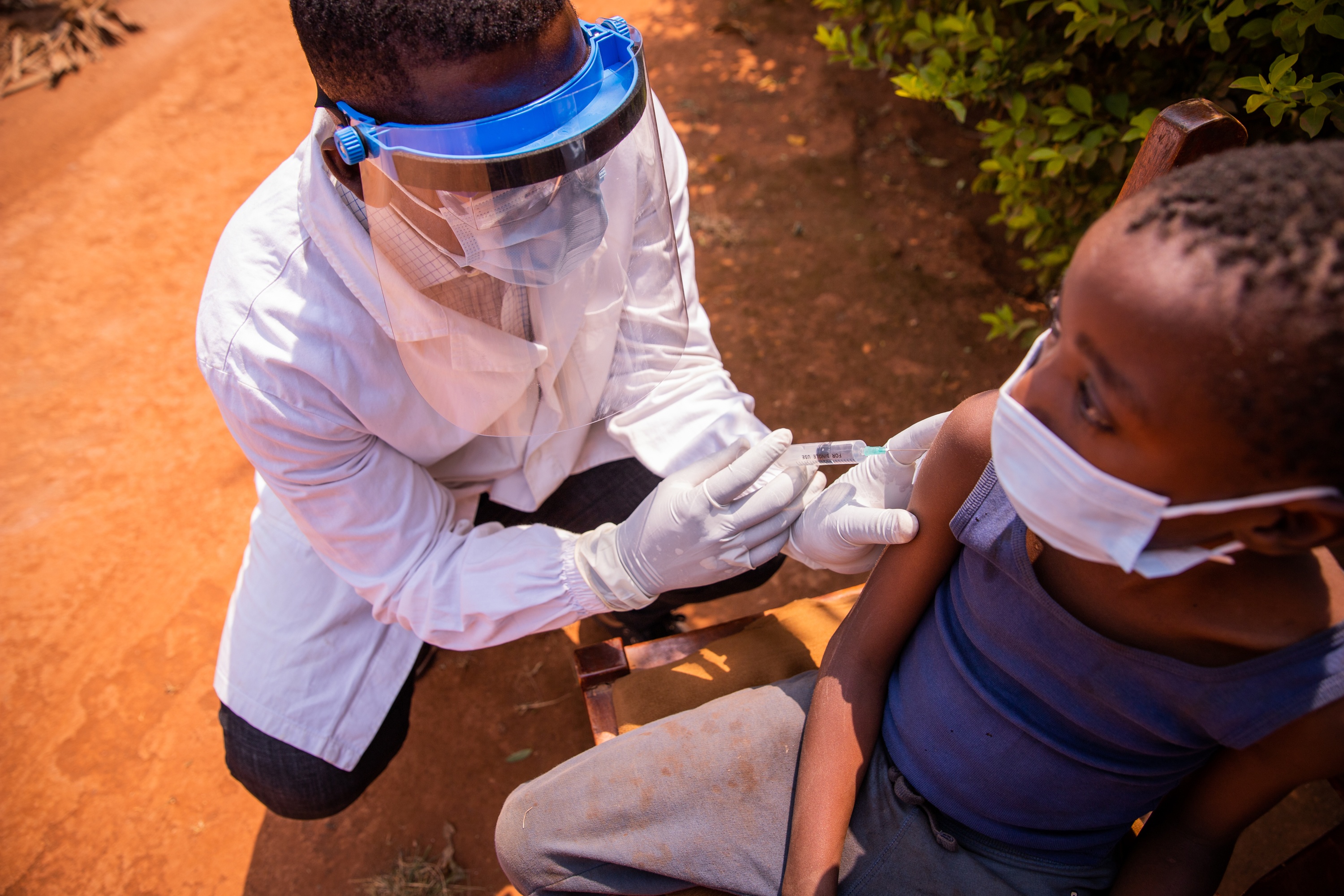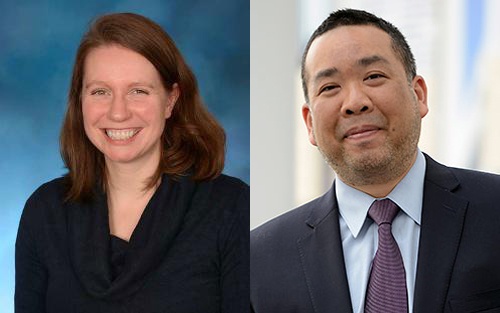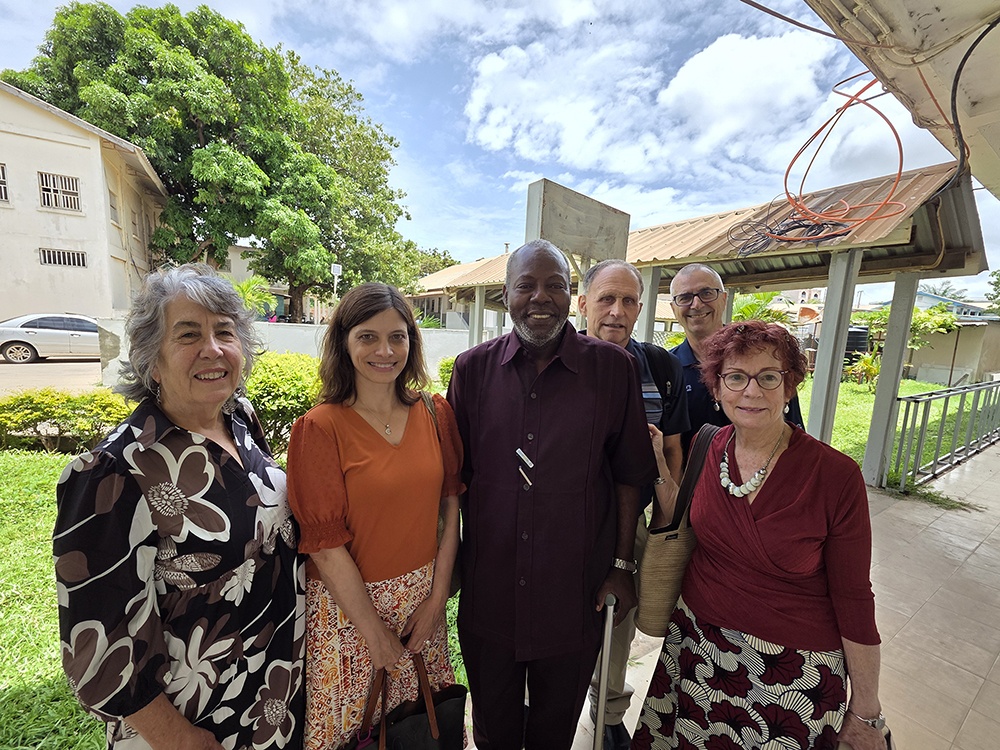
When Melissa McDiarmid, MD, MPH, DABT, began her career in occupational and environmental medicine, she never imagined her path would take her from Baltimore classrooms and clinics to shaping national health policy in West Africa. Today, she and her colleague Joanna Gaitens, PhD, MSN, MPH, RN, both faculty members in the University of Maryland School of Medicine’s (UMSOM) Division of Occupational and Environmental Medicine, are demonstrating how academic medicine can drive real-world change in global health.
Their latest work — anchored by a project supported through the University of Maryland, Baltimore (UMB) President’s Global Impact Fund — is transforming how health care workers in The Gambia are protected from occupational hazards.
Protecting Those Who Protect Us
Health care workers are the backbone of any health system, yet in many parts of the world, their occupational risks — from exposure to bloodborne pathogens to unsafe medical waste — remain unaddressed. In The Gambia, McDiarmid and Gaitens partnered with the Ministry of Health and the University of The Gambia to tackle these challenges head-on.
Together, they identified three urgent priorities: prevention of bloodborne hazards, airborne infection control, and safe medical waste management. Through sustained collaboration and capacity building, this work culminated in the creation and validation of The Gambia’s National Occupational Health and Safety Policy for Healthcare Workers in 2020.
“This was not about parachuting in with a ready-made solution,” McDiarmid explains. “Our goal was to work side by side with Gambian colleagues to develop strategies that made sense in their context — anchored in their own laws, customs, and health system realities. That’s what true global health partnership looks like.”
The new policy, rooted in existing legislation such as The Gambia’s Public Health Act and National Environment Management Act, provides a blueprint for protecting health care workers while strengthening the nation’s health system as a whole.
A Career at the Nexus of Health and Safety
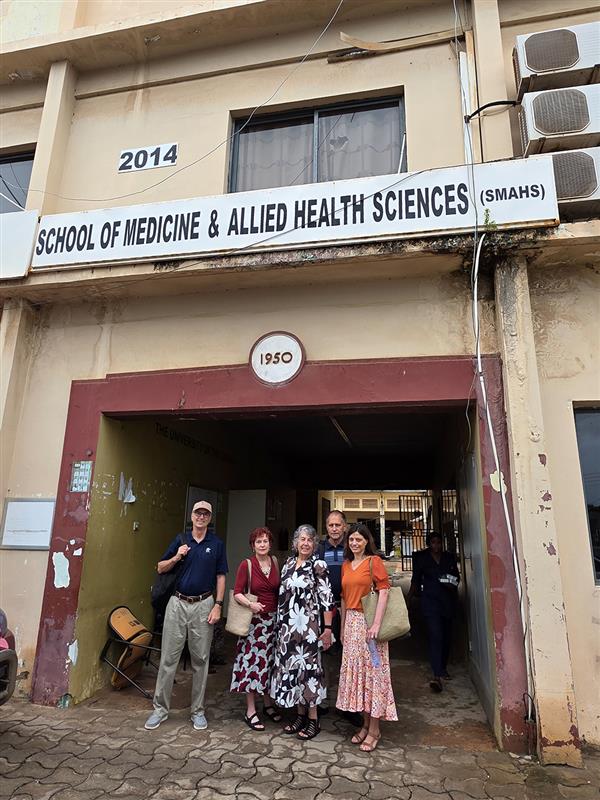
McDiarmid and Gaitens’ path to this work in The Gambia also has been shaped by membership in the global network of the World Health Organization/Pan American Health Organization Collaborating Centers (CC) in Occupational Health. The World Health Organization (WHO) is the United Nations agency responsible for international public health, while the Pan American Health Organization (PAHO) serves as WHO’s regional office for the Americas. Together, these bodies coordinate health policy, research, and workforce protections across nations.
As co-directors of this Collaborating Center — the only WHO CC in the University System of Maryland — McDiarmid and Gaitens and other Division of Occupational and Environmental Medicine faculty and staff contribute expertise to the WHO Global Plan for Workers’ Health, a worldwide initiative that guides member nations in creating safer working environments across industries. They have focused especially on the health care sector, helping shape policies informed by lessons from the global Ebola response and other infectious disease challenges.
McDiarmid also is an accomplished scholar, having co-authored a 2018 global training review that mapped out occupational and environmental health education programs across Italy, Thailand, Germany, and beyond. This review helped define where capacity building is most needed and highlighted UMB’s role as a convener of international expertise.
Yet despite her global reach, McDiarmid remains grounded in the simple truth that protecting health care workers protects entire communities.
“When workers are safe, patients are safe,” she says. “If we don’t safeguard the people delivering care, we can’t expect health systems to be resilient — whether in Maryland or in The Gambia.”
Lessons for Maryland and Beyond
For McDiarmid, the project in The Gambia represents more than just policy development; it also is a model for how U.S. universities can engage globally with humility and respect. By listening first and collaborating deeply, she believes institutions like UMB can both advance local priorities abroad and bring valuable lessons back home.
“Our students gain exposure to what it means to be a global citizen,” McDiarmid says. “They see firsthand how occupational health policies are shaped by culture, law, and available resources. And when they return to Maryland, they bring that perspective to their practice — benefiting our patients, our hospitals, and our communities.”
Indeed, Maryland itself benefits from this reciprocal learning. Students trained under McDiarmid and Gaitens’ guidance not only contribute to international projects but also enter the state’s health care workforce with a richer understanding of how to balance science, safety, and humanity.
Global Advocacy, Local Impact
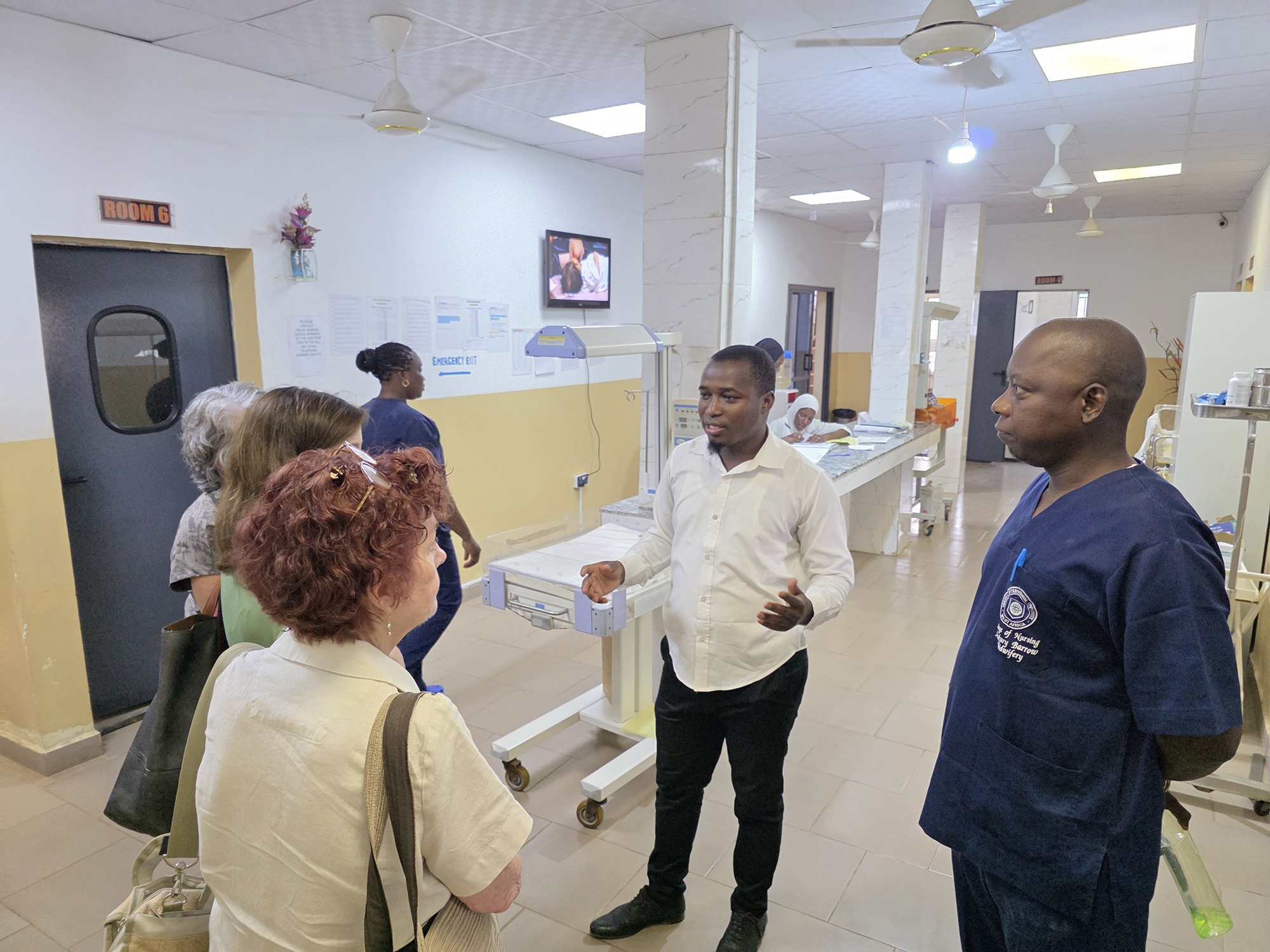
McDiarmid emphasizes that the success in The Gambia was made possible by the support of UMB’s President’s Global Impact Fund, which invests in initiatives that demonstrate the University’s mission of global citizenship.
“This project showed that when we empower local colleagues and prioritize their needs, the impact is lasting,” she says. “For me, the greatest reward is knowing that health care workers in The Gambia now have policies that protect them every day, and that our Maryland students helped make it happen.”
As they look ahead, McDiarmid and Gaitens are eager to expand on this foundation. They envision deeper collaborations with other African ministries of health and universities, stronger student exchanges, and ongoing engagement with the World Health Organization especially in the AFRO region, to elevate health worker protections, globally.
“Our responsibility doesn’t end at our state’s borders,” McDiarmid says. “We have both an opportunity and an obligation to share knowledge, build capacity, and work alongside colleagues around the world. That’s how we strengthen health systems, protect workers, support sustainable development, and ultimately, save lives.”
Elevating UMB’s Global Leadership
In recognizing McDiarmid and Gaitens’ work, UMB underscores its role as a global leader in health sciences — one that combines academic rigor with community engagement and international collaboration. Their careers stand as a testament to the power of sustained partnerships and the University’s commitment to improving health worldwide.
“Global health isn’t about us going out to fix problems,” McDiarmid says with characteristic humility. “It’s about listening, learning, and co-creating solutions with the people who know their systems best. That’s what makes the work meaningful, and that’s what makes it last.”
For UMB, and for the communities they have served from Baltimore to Banjul, McDiarmid and Gaitens’ work embodies the essence of global health advocacy: capacity building, community engagement, and the unwavering belief that safe workers mean healthier societies.
At a Glance: Melissa McDiarmid, MD, MPH, DABT
Titles and Roles
- Professor, Department of Medicine, University of Maryland School of Medicine
- Director, Division of Occupational and Environmental Medicine
- Co-Director, World Health Organization/Pan American Health Organization Collaborating Center in Occupational Health
About WHO and PAHO
- The World Health Organization (WHO) is the United Nations’ specialized agency for international public health.
- The Pan American Health Organization (PAHO) serves as WHO’s regional office for the Americas, working with member states to improve health and safety across the Western Hemisphere.
Global Health Leadership
- Contributor to the World Health Organization’s Global Plan for Workers’ Health, with a focus on the health care sector, including lessons from the Ebola response
- Led development of The Gambia’s National Occupational Health and Safety Policy for Healthcare Workers (validated in 2020), addressing bloodborne hazards, airborne infections, and safe medical waste management
Impact at UMB Global Program
- Principal investigator on a President’s Global Impact Fund project strengthening health systems in The Gambia
- Mentor to students and trainees, instilling the values of global citizenship and community engagement
Guiding Principle
“When workers are safe, patients are safe. If we don’t safeguard the people delivering care, we can’t expect health systems to be resilient — whether in Maryland or in The Gambia,” McDiarmid said.


